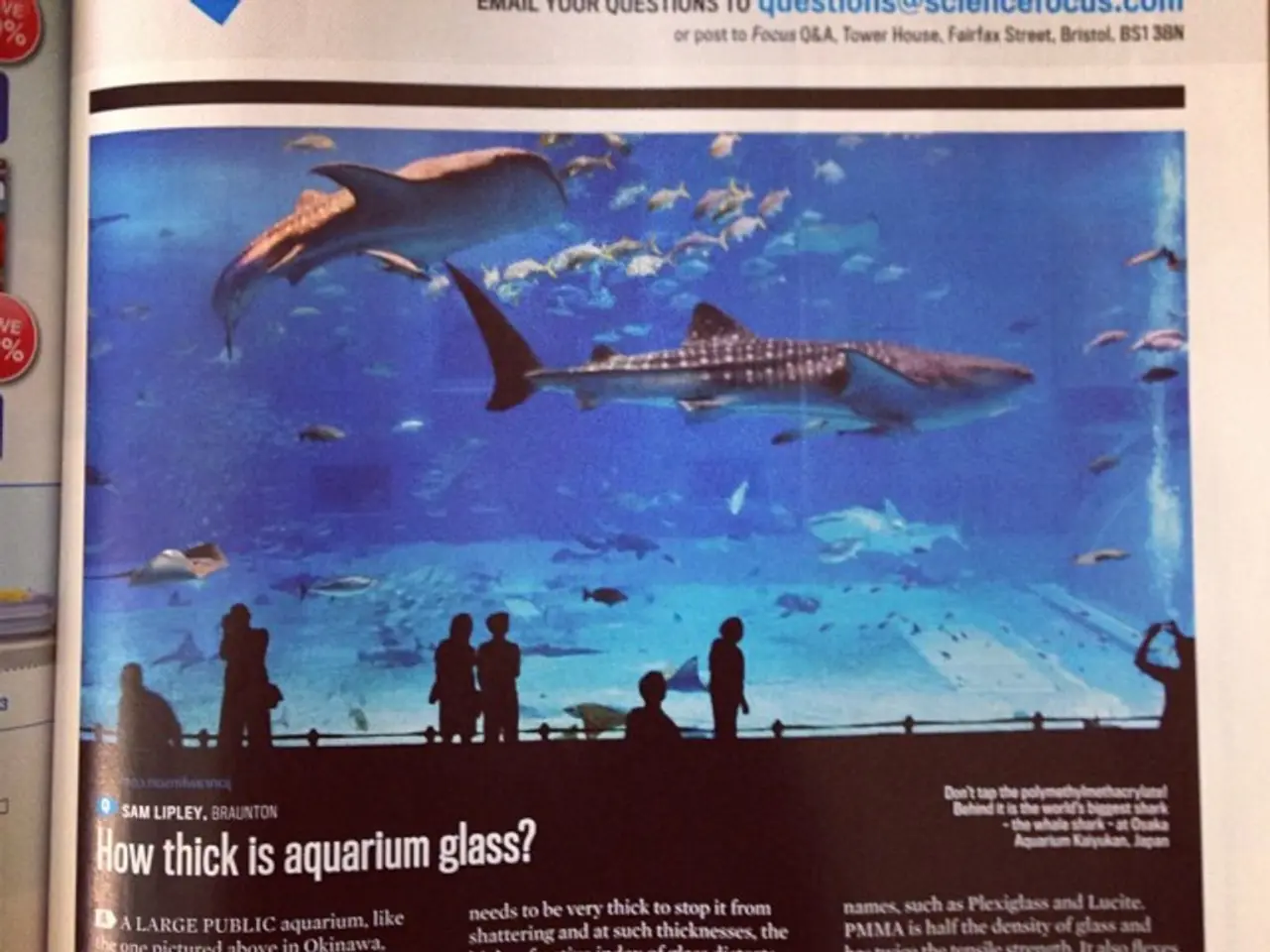Unveiling the Facts Surrounding Jessica Radcliffe's Controversial Orca Encounter that Set Social Media Ablaze
In the digital age, the rapid spread of misinformation on social media platforms like TikTok and Facebook has become a pressing concern. The Jessica Radcliffe orca attack hoax is a prime example of this phenomenon, highlighting the need for more effective fact-checking and critical thinking.
The hoax, which claimed that marine trainer Jessica Radcliffe was killed by an orca, was spread far and wide, primarily due to its sensational and emotionally charged content. The video, which combined AI-generated video and audio with staged footage, appeared convincing, exploiting human psychological triggers and social media algorithms that prioritize engaging, shocking material.
The potential impacts of this hoax are significant, particularly in the areas of animal welfare and workplace safety discussions.
In terms of animal welfare, the video could reinforce negative stereotypes about orcas as inherently dangerous, potentially increasing public support for restricting or stigmatizing marine mammal captivity. It might even unjustly affect attitudes toward conservation efforts or marine parks, conflating unethical captivity issues with fabricated violent behavior.
Regarding workplace safety, the hoax might distort serious conversations about occupational hazards in aquatic parks, distracting from real safety challenges and undermining trust in official safety records and procedures. It could lead to misinformation-driven fear or pressure on marine facility operators without basis, complicating genuine policy and safety improvements.
The strategic use of real, high-profile cases involving orcas in captivity played a role in making the hoax believable. The repetition of the name "Jessica Radcliffe" across multiple platforms made it sound authoritative, despite no evidence backing it up. No official reports, obituaries, marine park statements, or OSHA workplace safety reports for anyone named Jessica Radcliffe have been found.
Experts warn that hoaxes like the Jessica Radcliffe hoax can undermine meaningful discussions about animal welfare and workplace safety for marine trainers. The videos gained traction through attention-grabbing captions, slowed-down footage, and emotional storytelling. Some posts claimed the attack on Radcliffe was triggered by her menstrual blood mixing with the water, an unverified and sensational detail.
The cost of spreading misinformation is not only in misleading audiences but in distracting from legitimate advocacy efforts. The fictional account pulled attention away from ongoing debates over the treatment of large marine mammals - a topic still very much in the public and scientific spotlight.
The viral video claiming Jessica Radcliffe's death surged across TikTok and Facebook, racking up millions of views. However, it is believed to be fabricated, with voices in the video being AI-generated and much of the footage manipulated or recycled from unrelated events. No credible news coverage has been found for the alleged incident involving Jessica Radcliffe.
The speed at which the false claim spread online reveals deeper truths about how misinformation thrives. This incident underscores the challenges posed by AI-generated misinformation in shaping public perceptions about animal-human interactions and workplace risks, emphasizing the need for careful fact-checking and digital literacy to protect both societal understanding and animal welfare.
In the realm of pop-culture and general-news discourse, the Jessica Radcliffe orca attack hoax has sparked discussions about the potential impacts of misinformation on the public's perception of marine welfare and workplace safety. The viral video, though believed to be fabricated, highlights the need for more diligence in fact-checking and critical thinking when consuming information on social media platforms, particularly in the areas of crime-and-justice and entertainment.








